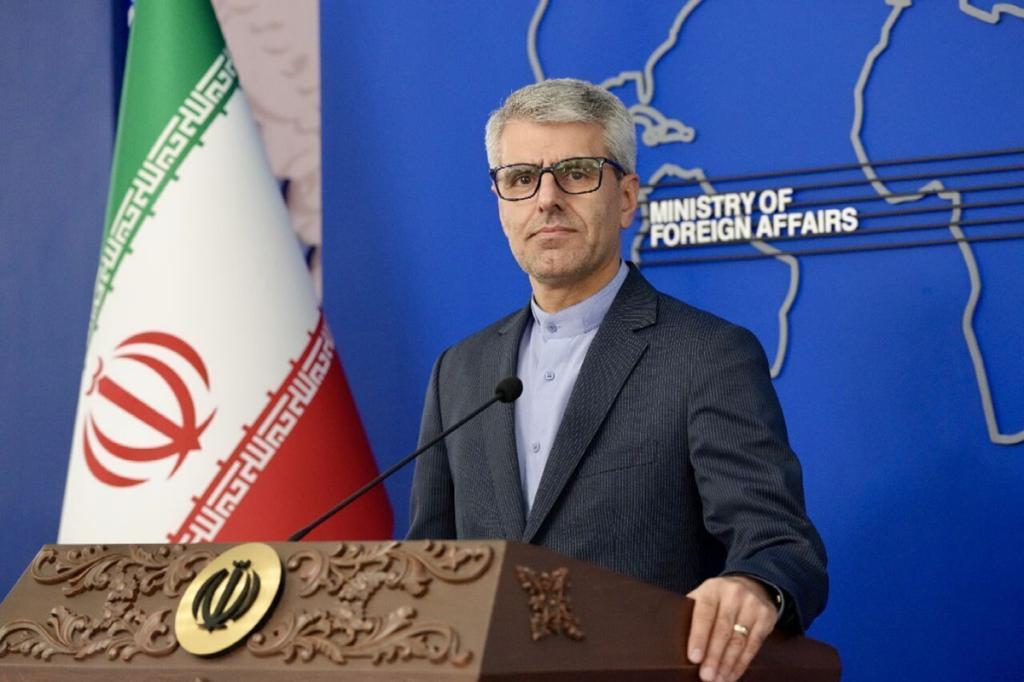Iran’s foreign ministry spokesman, Esmaeil Baqaei, stated that he is prioritising lifting of sanctions for the nation.
This comes as nuclear discussions between Tehran and the three European powers—France, Britain, and Germany, collectively known as the E3—resume just a week before the inauguration of US President-elect Donald Trump.
The talks, scheduled for Monday and Tuesday, mark the second round of discussions in less than two months. This follows a discreet meeting held in Geneva in November. However, both sides have clarified that these are not formal negotiations. The German foreign ministry referred to the discussions as “consultations,” while Baqaei similarly downplayed their status.

The spokesman explained that the primary goal of these discussions is the removal of sanctions on Iran, though Tehran is also prepared to listen to topics raised by the E3. France’s foreign ministry described the meeting as a continued effort by the E3 to pursue a diplomatic resolution to concerns over Iran’s nuclear programme, which has drawn increased scrutiny in the lead-up to Trump’s imminent return to the White House on 20th January.
During his first term, Trump implemented a policy of “maximum pressure” on Iran, withdrawing the US from the landmark 2015 nuclear agreement, the Joint Comprehensive Plan of Action (JCPOA), which had imposed limits on Iran’s nuclear activities in return for sanctions relief. While Tehran initially adhered to the agreement, it began to roll back its commitments following Washington’s withdrawal.
Efforts to revive the JCPOA have largely faltered, with European officials expressing frustration over Tehran’s non-compliance. Last week, French President Emmanuel Macron warned that the acceleration of Iran’s nuclear activities was “bringing us very close to the breaking point.” Tehran dismissed these remarks as “baseless” and “deceitful.”
In December, Britain, Germany, and France accused Iran of amassing high-enriched uranium at “unprecedented levels” without “any credible civilian justification.” The E3 reiterated their commitment to using all diplomatic means to prevent Iran from acquiring a nuclear weapon, including invoking the JCPOA’s snapback mechanism if necessary.
The snapback provision allows the reimposition of United Nations sanctions in cases of significant non-compliance and is set to expire in October this year, adding urgency to ongoing diplomatic efforts.
The International Atomic Energy Agency (IAEA) recently reported that Iran is enriching uranium to 60 percent, approaching the 90 percent threshold required for weapons-grade material. However, Iran insists its nuclear programme is entirely peaceful and denies any ambition to develop atomic weapons.


